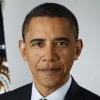Why is it that right-wing bastards always stand shoulder to shoulder in solidarity, while liberals fall out among themselves?
Yevgeny Yevtushenko (1933-2017) Russian poet, writer, film director, academic [Евге́ний Евтуше́нко, Evgenij Evtušenko]
In The Observer (15 Dec 1991)
(Source)
Quotations about:
solidarity
Note not all quotations have been tagged, so Search may find additional quotes on this topic.
Virtue is not left to stand alone. He who practises it will have neighbors.
[德不孤、必有鄰。]
Confucius (c. 551- c. 479 BC) Chinese philosopher, sage, politician [孔夫子 (Kǒng Fūzǐ, K'ung Fu-tzu, K'ung Fu Tse), 孔子 (Kǒngzǐ, Chungni), 孔丘 (Kǒng Qiū, K'ung Ch'iu)]
The Analects [論語, 论语, Lúnyǔ], Book 4, verse 25 (4.25) (6th C. BC – AD 3rd C.) [tr. Legge (1861)]
(Source)
Differing commentary on the text can be found; it may mean that virtue attracts others to its side, or it may be a comment on virtue needing to be practiced in a social setting.
(Source (Chinese)). Alternate translations:Virtue dwells not alone: she must have neighbors.
[tr. Jennings (1895)]Moral worth is never left alone; society is sure to grow round him.
[tr. Ku Hung-Ming (1898)]Virtue never dwells alone; it always has neighbors.
[tr. Soothill (1910)]Virtue attracts friends.
[tr. Soothill (1910), Alternate]Candidness is not fatherless, it is bound to have neighbors.
[tr. Pound (1933)]Moral force (tê) never dwells in solitude; it will always bring neighbors.
[tr. Waley (1938)]High moral conduct does not remain alone; it is sure to attract neighbors.
[tr. Ware (1950)]Virtue never stands alone. It is bound to have neighbors.
[tr. Lau (1979)]Virtue is not solitary. It is bound to have neighbors.
[tr. Dawson (1993)]Virtue is not solitary; it always has neighbors.
[tr. Leys (1997)]The virtuous are not solitary. They surely have neighbors.
[tr. Huang (1997)]A virtuous person is not alone, certainly has his companions.
[tr. Cai/Yu (1998)]Excellent persons (de) do not dwell alone; they are sure to have neighbors.
[tr. Ames/Rosemont (1998)]Virtue is not solitary; it must have neighbors.
[tr. Brooks/Brooks (1998)]Integrity's never alone. It always has neighbors.
[tr. Hinton (1998)]Virtue is never solitary; it always has neighbors.
[tr. Slingerland (2003)]Virtue is not alone. It invariably has neighbors.
[tr. Watson (2007)]Virtue does not stand alone. It is bound to have neighbors.
[tr. Annping Chin (2014)]A virtuous person is never lonely because there is always a comrade nearby.
[tr. Li (2020)]
Understand, democracy does not require uniformity. Our founders argued. They quarreled. Eventually they compromised. They expected us to do the same. But they knew that democracy does require a basic sense of solidarity — the idea that for all our outward differences, we’re all in this together; that we rise or fall as one.
Barack Obama (b. 1961) American politician, US President (2009-2017)
“Farewell Address,” Chicago (10 Jan 2017)
(Source)
I am an adherent of the ideal of democracy, although I know well the weaknesses of the democratic form of government. Social equality and economic protection of the individual have always seemed to me the important communal aims of the state. Although I am a typical loner in daily life, my consciousness of belonging to the invisible community of those who strive for truth, beauty, and justice keeps me from feeling isolated.
[Ich bekenne mich zum Ideal der Demokratie, trotzdem mir die Nachteile demokratischer Staatsform wohlbekannt sind. Sozialer Ausgleich und wirtschaftlicher Schutz des Individuums erschienen mir stets als wichtige Ziele der staatlichen Gemeinschaft. ch bin zwar im täglichen Leben ein typischer Einspänner, aber das Bewusstsein, der unsichtbaren Gemeinschaft derjenigen anzugehören, die nach Wahrheit, Schönheit und Gerechtigkeit streben, hat das Gefühl der Vereinsamung nicht aufkommen lassen.]
Albert Einstein (1879-1955) German-American physicist
“My Credo Mein Glaubensbekenntnis],” recording for the German League of Human Rights (Autumn 1932)
(Source)
Einstein crafted and recrafted his credo multiple times in this period, and specifics are often muddled by differing translations and by his reuse of certain phrases in later writing.
The surest defense against Evil is extreme individualism, originality of thinking, whimsicality, even — if you will — eccentricity. That is, something that can’t be feigned, faked, imitated; something even a seasoned imposter couldn’t be happy with. Something, in other words, that can’t be shared, like your own skin: not even by a minority. Evil is a sucker for solidity. It always goes for big numbers, for confident granite, for ideological purity, for drilled armies and balanced sheets. Its proclivity for such things has to do with its innate insecurity, but this realization, again, is of small comfort when Evil triumphs.
Joseph Brodsky (1940-1996) Russian-American poet, essayist, Nobel laureate, US Poet Laureate [Iosif Aleksandrovič Brodskij]
Commencement Address, Williams College (24 May 1984)
(Source)
Of course I vote! If you’re a woman, or a person of color, or a person who doesn’t own property, or even a white male who doesn’t belong to the nobility, centuries of struggle and many deaths have bought you the right to vote. I vote to keep faith with peasant rebels and suffragist hunger strikers and civil rights workers braving the lynch mobs of the South, if for no other reason. But there is another reason — because who we vote for has an enormous impact on real peoples’ lives.
Starhawk (b. 1951) American writer, activist, feminist theologian [b. Miriam Simos]
Blog post (2016-11-07), “Pre-Election Day Thoughts”
(Source)
That city [is best to live in,] in which those who are not wronged, no less than those who are wronged, exert themselves to punish the wrongdoers.
Solon (c. 638 BC - 558 BC) Athenian statesman, lawmaker, poet
Quoted in Plutarch, Parallel Lives, “The Life of Solon,” sec. 18.5 [tr. Perrin (1914)]
(Source)
Alt. trans.:
- "That [city is best managed] in which those who are not wronged espouse the cause of those who are, and punish their oppressors." [tr. Stewart, Long (1894)]
- "That [city is best modeled] where those that are not injured try and punish the unjust as much as those that are." [Source]
- "That [city is best modeled] where those who are not injured, are as ready to prosecute and punish offenders, as those who are." [tr. Langhorne, Langhorne (1819)]
- "The city [is best governed of all] where those who have not been wronged show themselves just as ready to punish the offender as thouse who have been." [tr. Scott-Kilvert (1960)]
- Paraphrased as "Justice can be secured in Athens if those who are not injured feel as indignant as those who are," in Earl Warren, "The Law and the Future," Fortune (Nov 1955).
What is not good for the swarm is not good for the bee.
[Τὸ τῷ σμήνει μὴ συμφέρον οὐδὲ τῇ μελίσσῃ συμφέρει.]
Marcus Aurelius (AD 121-180) Roman emperor (161-180), Stoic philosopher
Meditations, Book 6, #54 (2nd C AD)
Original here. Alt. trans.:
- "That which is not good for the beehive, cannot be good for the bee." [tr. Casaubon (1634); numbered 49]
- "What does not benefit the hive is no benefit to the bee." [tr. Farquharson (1944)]
- "That which is not for the interest of the whole swarm is not for the interest of the bee." [tr. Collier]
- "What injures the hive injures the bee." [tr. Hays (2002)]
- "What is not good for the hive is not good for the bee."
Your Honor, years ago I recognized my kinship with all living beings, and I made up my mind then that I was not one bit better than the meanest on earth. I said then, and I say now, that while there is a lower class, I am in it; and while there is a criminal element, I am of it; and while there is a soul in prison, I am not free.
Eugene V. Debs (1855-1926) American union leader, activist, socialist, politician
Statement to the Court (1918-09-18)
(Source)
On being convicted of sedition for urging resistance to the draft. Often paraphrased:As long as there is a lower class, I am in it. As long as there is a criminal element, I am of it. As long as there is a soul in prison, I am not free.
But this I will advise you to, which is, never to attack whole bodies of any kind; for, besides that all general rules have their exceptions, you unnecessarily make yourself a great number of enemies, by attacking a corps collectively. Among women, as among men, there are good as well as bad; and it may be full as many, or more, good than among men. This rule holds as to lawyers, soldiers, parsons, courtiers, citizens, &c. They are all men, subject to the same passions and sentiments, differing only in the manner, according to their several educations; and it would be as imprudent as unjust to attack any of them by the lump. Individuals forgive sometimes; but bodies and societies never do.
Lord Chesterfield (1694-1773) English statesman, wit [Philip Dormer Stanhope]
Letter to his son, #110 (5 Apr 1746)
(Source)
United we stand, divided we fall.
Aesop (620?-560? BC) Legendary Greek storyteller
Fables [Aesopica], “The Four Oxen and the Lion” (6th C BC) [tr. Jacobs (1894)]
(Source)
Many hands make light warke.
John Heywood (1497?-1580?) English playwright and epigrammist
Proverbes, Part 2, ch. 5 (1546)
(Source)
CYNICAL CAT: Little one, I would like to see anyone — prophet, king or God — persuade a thousand cats to do anything at the same time.
Neil Gaiman (b. 1960) British author, screenwriter, fabulist
Sandman, Book 3. Dream Country, # 18 “A Dream of a Thousand Cats” (1990-08)
(Source)
Under a government which imprisons any unjustly, the true place for a just man is also a prison.
Henry David Thoreau (1817-1862) American philosopher and writer
Essay (1849-05), “Resistance to Civil Government [On the Duty of Civil Disobedience],” Æsthetic Papers, No. 1, Article 10
(Source)
Based on an 1848 lecture at the Concord Lyceum.



















